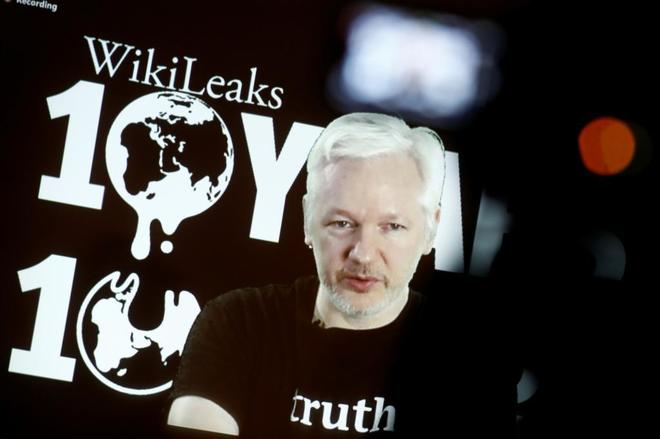
The latest submission from WikiLeaks, the group of cyber activists led by Julian Assange, has uncovered and broadcast the programs supposedly used by the CIA to spy on anyone who has a device with an internet connection, be it a mobile phone, a tablet, a computer or even a satellite dish. The North American agency is taking advantage of the possibilities offered by the technology within these devices, which users accept when they agree to the terms of use, by using them to meddle in the private conversations of any citizen they see fit. The most prominent case is that of Samsung’s smart televisions, which the CIA can use to listen to and record conversations even when they are switched off.
WikiLeaks considers this to be a much more significant leak than the State Department diplomatic cables leak in 2010 or the NSA leaks in 2013. If its authenticity is confirmed, we will find ourselves facing a new governmental espionage scandal. It evidently does not call to mind Captain Renault in Casablanca (“I’m shocked to find that gambling is going on in here”) upon entering Rick Blaine’s café, because the objective of an intelligence agency is to spy, even though at times they may have to use illegal methods, which is reproachable.
But first, it is worth discussing the tremendous embarrassment that WikiLeaks is subjecting the CIA to by revealing not the results of its investigations, but the computer programs – the methods – that it uses to carry out its work. A key global agency in the fight against terrorism has been completely exposed. It will cost time, effort and money to repair the damage done. If the information is accurate, the leak also comes at a sensitive time for the United States. President Trump has harshly criticized several of the country’s secret services, calling them ineffective, and the controversy over Russian espionage during the U.S. electoral campaign rumbles on. The leak will only encourage Trump to order radical changes in the running of the CIA.
However, this new episode has demonstrated once again that the barriers of privacy have disappeared. We have given the devices that we use regularly permission to collect our conversations. Apple’s voice assistant Siri, for example, records everything that it hears and sends it to the company’s servers. Intelligence agencies then make use of this in order to intercept this information illegally.
Defending yourself from this invasion is not easy. Two of the affected companies, Samsung and Apple, announced that they are working to prevent these security issues. Microsoft has been proposing a kind of digital Geneva Convention for some time now that would establish the criteria for “protecting civilians from nation-state attacks in times of peace.” Technology companies want to be part of forming these criteria, which are considered fundamental to “making the Internet a safer place.” There could well be other solutions, but the presence of this risk has been perfectly demonstrated and in order to reduce it, a coordinated effort between governments and businesses across the world is essential.

Leave a Reply
You must be logged in to post a comment.